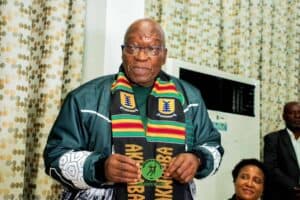Electors are being called out after five years of turmoil sparked by Nkurunziza's bid for a disputed third term, which unleashed unrest that left at least 1,200 dead and saw 400,000 flee the country.

Burundians began voting Wednesday in a tense election to replace long-ruling President Pierre Nkurunziza, that is proceeding despite an outbreak of coronavirus which has been largely ignored in the east African nation.
Burundians stood in long lines outside polling stations, which opened shortly after six am, to elect not just their new president, but parliamentarians and local councillors, who in turn appoint the members of the Senate.
“The vote is open,” said Prosper Sindayihebura, president of a polling station at Bugera primary school in central Mwarao province. Each booth has a blue ballot box for the presidential election, a green one for the legislative and red for the local.
In the presidential vote, 5.1 million registered voters are chosing between Nkurunziza’s handpicked heir and frontrunner, 52-year-old general Evariste Ndayishimiye, main opposition competitor Agathon Rwasa, and five other candidates.
While Ethiopia postponed its elections as a result of the coronavirus pandemic, Burundi pushed ahead with the vote.
The population of an estimated 11 million people have not had any restrictions on their movement unlike in neighbouring countries.
As throughout the campaign, Saturday’s final rally of the ruling CNDD-FDD party in commercial capital Bujumbura saw heaving crowds gathered for hours, with only buckets of water and soap available as a nod to the virus.
Ndayishimiye and other officials have insisted God is protecting the East African state, and only 42 positive cases and one death have officially been recorded.
However doctors accuse the government of minimising the extent of the outbreak, while residents of Bujumbura have told AFP of mysterious deaths of neighbours and relatives with respiratory problems and fevers.
Clash of Hutu rebel leaders
The campaign was marked by violence and arbitrary arrests – the kind that has persisted in the shadows since the 2015 poll – and observers expected a bitter contest between the two frontrunners.
Ndayishimiye is a party veteran who like Nkurunziza, fought for the ethnic Hutu rebellion during the country’s 1993-2006 civil war with the minority Tutsi-dominated army. The war left some 300,000 dead.
Rwasa, 56, was a leader of the oldest ethnic Hutu rebel movement Palipehutu-FNL, one of the two main rebel groups in the war.
In the eyes of the majority Hutu – 85 percent of the population — Rwasa has as much legitimacy as a presidential candidate as his rival.
“The people won’t let their victory be stolen,” warned Rwasa, after the ruling party made clear it expects no other outcome than a resounding win.
Nkurunziza’s decision to step aside came as a surprise after constitutional changes in 2018 opened the possibility for him to stay in office until 2034.
In January legislators passed a law offering a golden parachute to outgoing presidents, including a luxury villa and a one-off sum equivalent to more than half a million dollars.
The retired president will also get the same benefits as a serving vice-president for seven years after he steps down, and will for the rest of his life receive an allowance equal to that of a lawmaker.
The outgoing president, who has ruled for 15 years, was in February named the “supreme guide for patriotism” and he is expected to retain an influential role if the ruling party retains its power.
‘Phenomenon of despair’
The government has refused any observers from the UN or the African Union, accusing the latter of being too close to the opposition.
Social networks had been shut down from at least one hour before voting began, with access only possible via a virtual private network.
Observers highlight the massive crowds mobilised by Rwasa during his campaign.
“There is a phenomenon of despair, a feeling of ‘anything but the CNDD-FDD’, and Rwasa is riding this wave,” said International Crisis Group expert Onesphore Sematumba.
The World Bank lists Burundi among the three poorest countries in the world, with 75 percent of the country living in extreme poverty and six out of 10 children suffering malnutrition.
For more news your way, download The Citizen’s app for iOS and Android.






